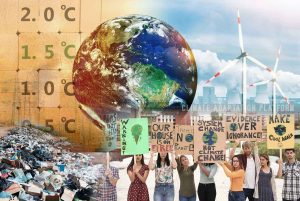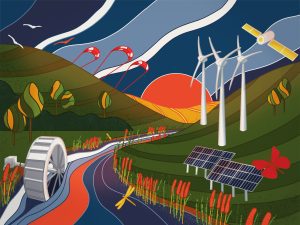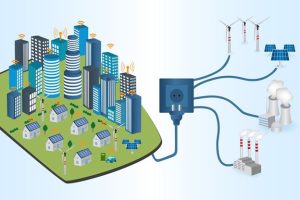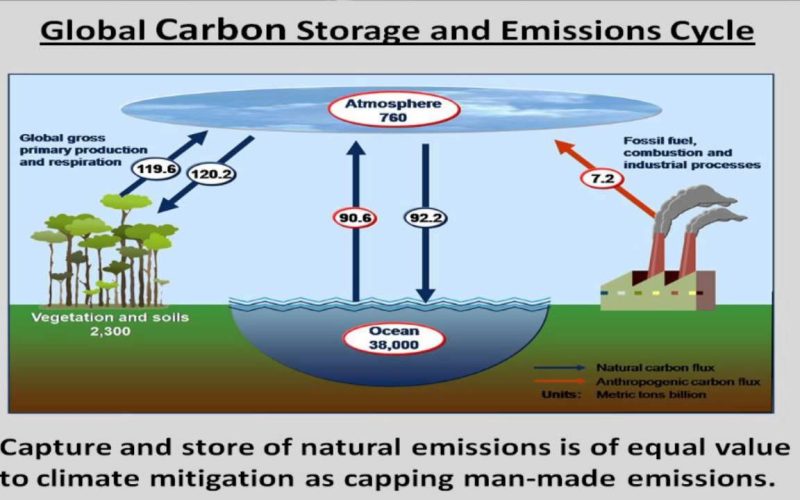AI-driven climate modeling

The role of AI in enhancing predictive accuracy in climate models cannot be overstated. Traditional climate models rely on complex mathematical equations and vast datasets, which often lead to approximations and uncertainties. AI, with its advanced machine learning algorithms, can process these datasets more efficiently and identify patterns that might be missed by conventional methods. By integrating AI into climate modeling, we can achieve more accurate predictions of climate patterns, helping policymakers make informed decisions about climate action plans.
Facilitating real-time climate data analysis is another critical role of AI in climate modeling. Real-time data is essential for understanding the immediate impacts of climate change and for making prompt decisions to mitigate these effects. AI systems can analyze vast amounts of real-time data from various sources, such as satellite imagery, weather stations, and ocean buoys, to provide a comprehensive picture of the current climate conditions. This capability allows for quicker response times and more effective climate action strategies.
Enhanced weather prediction
Improved accuracy in weather forecasting models is a significant benefit of AI. Traditional weather forecasting methods often struggle with the sheer volume of data and the complexity of weather systems. AI algorithms can analyze historical weather data, identify trends, and make more precise predictions about future weather conditions. This improved accuracy is crucial for preparing for and mitigating the impacts of adverse weather events.
Enhanced early warning systems for extreme weather are another area where AI plays a pivotal role. By leveraging AI, meteorologists can develop more reliable early warning systems that provide timely alerts about impending extreme weather events, such as hurricanes, floods, and heatwaves. These systems can save lives and reduce economic losses by allowing communities to prepare and respond more effectively to these events.
Optimizing renewable energy sources

The role of AI in optimizing solar energy efficiency is transformative. Solar energy systems depend on various factors, such as weather conditions, geographical location, and time of year. AI can analyze these variables to optimize the performance of solar panels, ensuring maximum energy output. This optimization can lead to significant cost savings and increased adoption of solar energy as a viable alternative to fossil fuels.
Enhancing wind energy forecasting is another critical application of AI. Wind energy production is highly variable and depends on accurate wind forecasts. AI can analyze meteorological data to predict wind patterns more accurately, helping wind farms optimize their energy production. This improved forecasting can lead to more efficient use of wind resources and increased reliability of wind energy as a renewable source.
Carbon footprint tracking
Enhancing accuracy in carbon footprint tracking is a vital role of AI. Accurately tracking carbon emissions is essential for developing effective climate action plans. AI systems can analyze large datasets from various sources, such as industrial processes, transportation, and energy consumption, to provide a precise measurement of carbon footprints. This enhanced accuracy helps organizations and governments set realistic targets for reducing emissions.
Streamlining data collection for climate action plans is another area where AI excels. Collecting and analyzing data for climate action plans can be a time-consuming and complex process. AI can automate data collection, processing, and analysis, making it easier for policymakers to develop and implement effective climate strategies. This streamlined approach ensures that climate action plans are based on accurate and up-to-date information.
Smart agriculture and water management
The role of AI in optimizing irrigation schedules for water conservation is crucial for sustainable agriculture. Water is a precious resource, and efficient use is essential for both food production and environmental conservation. AI can analyze weather data, soil conditions, and crop needs to develop optimal irrigation schedules that minimize water use while maximizing crop yields. This optimization helps conserve water resources and ensures the sustainability of agricultural practices.
Predicting crop yields to improve resource allocation is another significant application of AI in agriculture. Accurate crop yield predictions are essential for planning and resource allocation. AI can analyze various factors, such as weather conditions, soil health, and crop management practices, to predict crop yields more accurately. This information helps farmers make informed decisions about planting, harvesting, and resource allocation, leading to more efficient and sustainable agricultural practices.
Disaster response and mitigation
Predicting natural disasters for timely response is a critical role of AI in disaster management. Natural disasters, such as earthquakes, floods, and hurricanes, can have devastating impacts on communities and economies. AI can analyze historical data and real-time information to predict the likelihood and severity of natural disasters. This predictive capability allows for timely response and preparation, reducing the impact of these events on lives and property.
Optimizing resource allocation during disaster recovery is another area where AI can make a significant difference. Effective disaster recovery requires efficient allocation of resources, such as food, water, medical supplies, and personnel. AI can analyze the needs of affected communities and optimize the distribution of resources to ensure that they are used most effectively. This optimization helps speed up recovery efforts and reduces the long-term impacts of disasters.
Energy-efficient urban planning

The role of AI in optimizing energy-efficient urban infrastructure is transformative for modern cities. Urban areas are significant contributors to carbon emissions, and optimizing their energy use is essential for climate action. AI can analyze data on energy consumption, transportation patterns, and building efficiency to develop strategies for reducing energy use and improving sustainability. This optimization leads to more energy-efficient urban infrastructure and reduced carbon footprints.
Predictive modeling for urban energy consumption is another critical application of AI. Understanding and predicting energy consumption patterns in urban areas are essential for planning and managing energy resources. AI can analyze historical data and current trends to develop predictive models that help city planners make informed decisions about energy use. This predictive capability ensures that urban areas can meet their energy needs sustainably and efficiently.
Public awareness and education
The role of AI in climate data analysis and prediction is essential for raising public awareness about climate change. Accurate and accessible information about climate change is crucial for informing and educating the public. AI can analyze vast amounts of climate data and present it in a way that is easy to understand, helping people grasp the urgency and importance of climate action.
Optimizing renewable energy usage is another area where AI can contribute to public awareness and education. By demonstrating the benefits and efficiencies of renewable energy sources, AI can help promote their adoption. AI can analyze data on energy consumption and renewable energy production to show how individuals and communities can reduce their carbon footprints by switching to renewable energy sources. This information empowers people to make informed choices about their energy use and contribute to climate action efforts.











